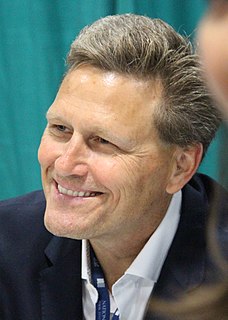A Quote by Robert Kennedy
Science began as one of the noblest expressions of man's reason. It will continue to serve humanity so long as it never forgets that human beings remain the heart of its purpose.
Related Quotes
Science, is the creation by humans of a particular paradigm and methodology for discovering truth and understanding reality. Hence it can never fully reflect the hidden face of humanity, its creator, in the same sense that a computer can never become fully human or know what it means to be human: however sophisticated, these machines will forever remain mere artifacts of humanity.
The greatest flaw of human beings is to remain glued to the inventory of reason. Reason doesn't deal with man as energy. Reason deals with instruments that create energy, but it has never seriously occurred to reason that we are better than instruments: we are organisms that create energy. We are bubbles of energy.
To emancipate woman is to refuse to confine her to the relations she bears to man, not to deny them to her; let her have her independent existence and she will continue nonetheless to exist for him also: mutually recognising each other as subject, each will yet remain for the other an other...when we abolish the slavery of half of humanity, together with the whole system of hypocrisy that it implies, then the 'division' of humanity will reveal its genuine significance and the human couple will find its true form.
I need to learn. Joy is at the heart of God's plan for human beings. The reason for this is worth pondering awhile: Joy is at the heart of God himself. We will never understand the significance of joy in human life until we understand its importance to God. I suspect that most of us seriously underestimate God's capacity for joy.
The ultimate reason for meditating is to transform ourselves in order to be better able to transform the world or, to put it another way, to transform ourselves so we can become better human beings in order to serve others in a wiser and more efficient way. It gives your life the noblest possible meaning.
Now the basic impulse behind existentialism is optimistic, very much like the impulse behind all science. Existentialism is romanticism, and romanticism is the feeling that man is not the mere he has always taken himself for. Romanticism began as a tremendous surge of optimism about the stature of man. Its aim - like that of science - was to raise man above the muddled feelings and impulses of his everyday humanity, and to make him a god-like observer of human existence.

































